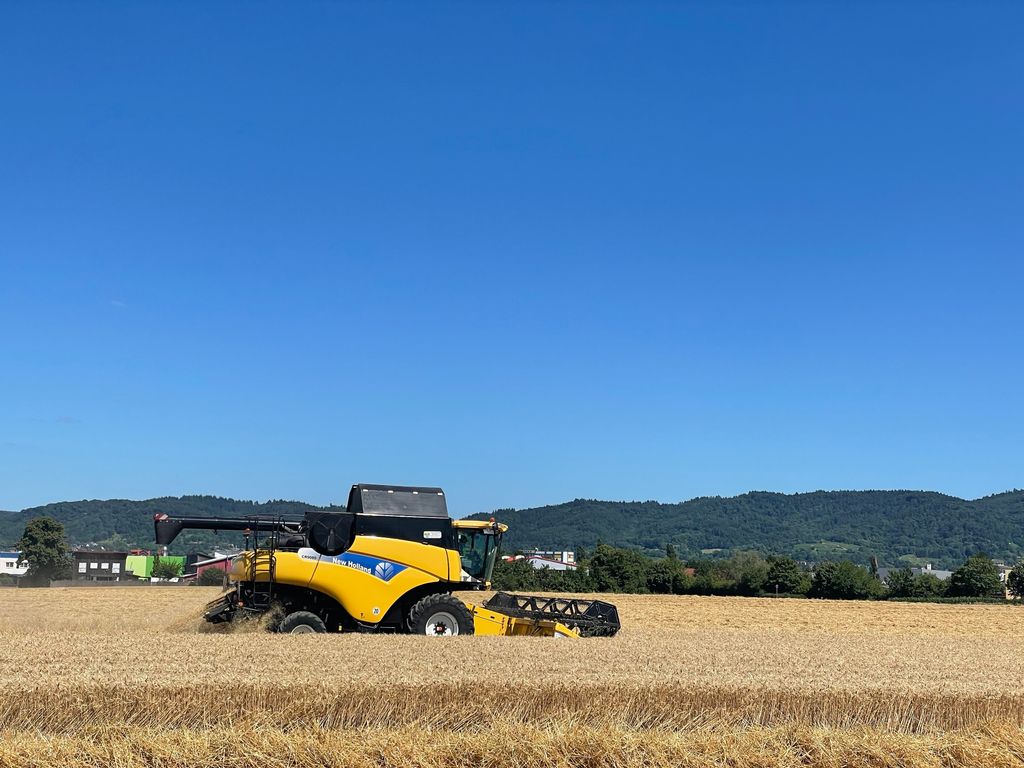The article explores the growing demand for food processing equipment in Germany and highlights the factors driving the increase in exports. It also discusses key players in the German food processing equipment industry, challenges and opportunities in the market, technological advancements, and the regulatory landscape. Additionally, the article analyzes market trends, the impact of COVID-19, and strategies for entering the German market. Lastly, it provides insights into the competitive landscape and market share of leading manufacturers, along with strategies for competing in the German market.
Key Takeaways
- The demand for food processing equipment in Germany is on the rise due to increasing consumption of processed food.
- Automation and emerging technologies are driving the shift towards automated food processing solutions.
- COVID-19 has had a significant impact on the food processing equipment industry, leading to changes in consumer behavior and supply chain disruptions.
- Understanding the German market, identifying target customers, and developing effective marketing and sales channels are crucial for successful market entry.
- Competition in the German food processing equipment market is intense, requiring strategic positioning and differentiation to gain market share.
The Growing Demand for Food Processing Equipment in Germany
Factors Driving the Increase in Food Processing Equipment Exports
As the demand for processed food continues to rise in Germany, we are witnessing a significant increase in the export of food processing equipment. The German market is experiencing a shift towards automated solutions, driving the need for advanced machinery and technology. Additionally, the regulatory landscape in Germany is favorable for food processing equipment exports, providing opportunities for international manufacturers to enter the market. With these factors in play, we are confident that the export of food processing equipment will continue to grow in the coming years.
Key Players in the German Food Processing Equipment Industry
In the German food processing equipment industry, we have identified several key players who are driving innovation and shaping the market. These companies have established themselves as leaders in the industry and are known for their high-quality products and cutting-edge technologies. Some of the top players in the German market include GEA Group, Tetra Pak, Buhler, Alfa Laval, Marel, JBT Corporation, SPX FLOW, and Robert. These companies have a strong presence in Germany and have a significant market share. They have a wide range of products and solutions that cater to the diverse needs of the food processing industry.
Challenges and Opportunities in the German Market
In the German market, we understand the challenges and complexities that come with exporting food processing equipment. With our experienced staff, we have the expertise to navigate the regulatory landscape and overcome any obstacles that may arise. Our goal is to help you seize the opportunities in this growing market and establish a strong presence. Here are some key factors to consider:
- Regulatory Compliance: Ensure that your equipment meets the strict regulatory standards set by German authorities.
- Market Competition: Be prepared to compete with established players in the German food processing equipment industry.
- Localization: Adapt your products and marketing strategies to cater to the specific needs and preferences of German consumers.
Tip: Building strong relationships with local distributors and partners can greatly enhance your market penetration and success.
Technological Advancements in Food Processing Equipment
In recent years, the food processing equipment industry has witnessed significant technological advancements. These advancements have revolutionized the way food is processed, improving efficiency, productivity, and quality. One important development is the integration of smart technology into food processing equipment, allowing for real-time monitoring, data analysis, and automation. This enables manufacturers to optimize their processes, reduce waste, and ensure consistent product quality. Additionally, advancements in hygienic design have enhanced food safety by minimizing the risk of contamination and facilitating easier cleaning and maintenance. With these technological advancements, the food processing equipment industry is poised for continued growth and innovation.
Regulatory Landscape for Food Processing Equipment Exports
In Germany, the regulatory landscape for food processing equipment exports is an important aspect to consider. We are aware of the various regulations and standards that govern the import and export of such equipment. Compliance with these regulations ensures the safety and quality of the equipment being exported. It is crucial for us to stay updated with the latest regulations and ensure that our products meet the required standards. This helps us build trust with our customers and maintain a strong reputation in the market.
Market Trends and Analysis
Rising Consumption of Processed Food in Germany
The consumption of processed food in Germany has been on the rise in recent years. This trend can be attributed to changing consumer preferences and a busy lifestyle that demands convenient and ready-to-eat meals. Processed food offers a quick and easy solution for individuals and families who are looking for convenient meal options. Additionally, the availability of a wide range of processed food products in supermarkets and online platforms has further fueled the demand. As a result, the market for processed food in Germany has witnessed significant growth.
- The consumption of processed food in Germany has increased steadily over the years.
- Changing consumer preferences and a busy lifestyle are driving the demand for convenient meal options.
- Processed food offers a quick and easy solution for individuals and families.
- The availability of a wide range of processed food products has further fueled the demand.
Tip: To capitalize on the growing demand for processed food in Germany, food processing equipment manufacturers should focus on developing innovative and efficient solutions that cater to the specific needs of the market.
Shift towards Automated Food Processing Solutions
In response to the growing demand for efficiency and productivity, we are witnessing a significant shift towards automated food processing solutions in Germany. Automation solutions used in the food and beverage sector include robotics, conveyor systems, automated guided vehicles and AMRs, vision systems, packaging machinery, and more. These technologies not only streamline processes but also improve product quality and safety. By reducing manual labor and human error, automation enables food processing companies to meet the increasing consumer demands while maintaining profitability.
Emerging Technologies in Food Processing Equipment
As we explore the realm of emerging technologies in food processing equipment, we are witnessing a wave of innovation that is revolutionizing the industry. From advanced automation systems to cutting-edge machinery, technology is reshaping the way food is processed and manufactured. One notable example is the use of quantum technology in food processing equipment, which offers enhanced precision and efficiency. This technology allows for precise control over various processes, resulting in improved product quality and reduced waste.
In addition to quantum technology, other emerging technologies are also making their mark in the food processing equipment industry. Conveyors equipped with water spray systems and bulk feeders are streamlining the production process, ensuring a smooth flow of materials and minimizing downtime. Furthermore, the integration of artificial intelligence (AI) and machine learning algorithms is enabling predictive maintenance and optimizing production schedules.
With these advancements, food processing equipment manufacturers are able to meet the growing demand for efficient and sustainable solutions. By embracing emerging technologies, we are paving the way for a future where food processing is faster, more precise, and environmentally friendly.
Impact of COVID-19 on the Food Processing Equipment Industry
The COVID-19 pandemic has significantly impacted the food processing equipment industry. Companies were forced to adapt to the new challenges and demands brought about by the pandemic. The global PPE market experienced a surge in demand, and food processing equipment manufacturers had to prioritize safety and security in their products. This led to the development of innovative solutions that provide enhanced safety, comfort, and technological features. The industry witnessed a future-oriented shift towards ensuring the well-being of workers and maintaining the integrity of food processing operations.
In response to the increased demand for food processing equipment, manufacturers ramped up production and streamlined their supply chains. Efficient production processes and strategic partnerships with suppliers became crucial in meeting the market demand. Additionally, companies focused on enhancing automation and digitization in their equipment to improve efficiency and reduce the risk of contamination.
The COVID-19 pandemic also highlighted the importance of regulatory compliance in the food processing equipment industry. Manufacturers had to navigate through changing regulations and ensure that their products met the required safety standards. This created opportunities for companies that specialize in providing regulatory consulting services and certification.
As the industry continues to recover from the impact of the pandemic, it is essential for food processing equipment manufacturers to stay agile and adapt to the evolving market trends. The focus on safety, automation, and regulatory compliance will remain crucial in meeting the demands of the post-pandemic era.
Export Strategies and Market Entry
Understanding the German Food Processing Equipment Market
When it comes to understanding the German food processing equipment market, we need to consider several key factors. First and foremost, Germany boasts a large population of over 83.3 million food consumers, making it a significant market for food processing equipment. Additionally, the Germany agricultural equipment market is expected to grow at a CAGR of 3.54% from 2022-2028, indicating a positive outlook for the industry. This growth can be attributed to increased emphasis on energy-efficiency and surging demand for autonomous equipment. It is important for companies entering this market to stay updated on the latest trends and technologies in order to stay competitive. Furthermore, navigating import regulations and customs procedures is crucial for successful market entry. Partnering with a knowledgeable and experienced third-party collection partner can help businesses effectively manage their accounts receivable and minimize write-offs. In conclusion, understanding the German food processing equipment market requires a comprehensive understanding of the market size, growth potential, technological advancements, and regulatory landscape.
Identifying Target Customers and Market Segments
When it comes to identifying our target customers and market segments, we understand the importance of thorough research and analysis. We start by considering the unique needs and preferences of the German market, taking into account factors such as demographics, consumer behavior, and market trends. By leveraging data and insights, we can identify the most promising customer segments and tailor our marketing strategies accordingly.
To further refine our target customers and market segments, we also consider the competitive landscape and analyze the strategies of key competitors. This helps us identify gaps in the market and areas where we can differentiate ourselves. Additionally, we explore partnerships and collaborations with local distributors and industry associations to gain a deeper understanding of the market dynamics and access potential customers.
In order to effectively reach our target customers, we utilize a combination of online and offline marketing channels. This includes digital advertising, social media marketing, trade shows, and industry events. By utilizing a multi-channel approach, we can maximize our reach and engage with customers at various touchpoints.
Overall, our approach to identifying target customers and market segments is data-driven and strategic. We continuously monitor market trends and adapt our strategies to ensure we are effectively reaching and serving our target customers.
Developing Effective Marketing and Sales Channels
When it comes to developing effective marketing and sales channels in the German market, we understand the importance of utilizing the right strategies. Most German companies use direct marketing to sell their products and services, with email and online marketing being the most frequently used formats. Telephone communication also plays a significant role in reaching potential customers. Additionally, building strong relationships with local distributors and retailers can help expand market reach and increase sales. It is essential to stay updated with the latest marketing trends and technologies to stay ahead of the competition. By leveraging these channels effectively, we can maximize our reach and achieve success in the German market.
Navigating Import Regulations and Customs Procedures
When it comes to importing food processing equipment into Germany, there are certain requirements and documentation that need to be followed. One important aspect to consider is the import regulations and customs procedures. These regulations ensure that the imported equipment meets the necessary standards and complies with the country’s regulations and standards. It is crucial to understand and comply with these regulations to avoid any delays or issues during the import process.
To navigate the import regulations and customs procedures effectively, here are some key points to keep in mind:
- Familiarize yourself with the Germany – Import Requirements and Documentation provided by the International Trade Administration. This guide provides valuable information on the specific requirements and documentation needed for importing food processing equipment.
Tip: Ensure that you have a thorough understanding of the import regulations and customs procedures to avoid any potential compliance issues.
-
Work closely with a customs broker or freight forwarder who has experience in handling imports to Germany. They can provide guidance and assistance in navigating the complex import procedures and ensure that all necessary documentation is in order.
-
Stay updated with any changes or updates in the import regulations and customs procedures. The regulatory landscape may evolve, and it is important to stay informed to ensure compliance with the latest requirements.
Tip: Regularly check for updates from relevant government agencies or trade associations to stay informed about any changes in import regulations and customs procedures.
By understanding and adhering to the import regulations and customs procedures, businesses can successfully navigate the import process and ensure smooth operations in the German market.
Competitive Landscape and Market Share
Analysis of Key Competitors in the German Market
When it comes to analyzing the key competitors in the German market, we understand the importance of staying ahead of the game. We closely monitor the strategies and performance of our competitors to identify areas where we can improve and differentiate ourselves. By studying their strengths and weaknesses, we can capitalize on opportunities and mitigate potential threats. Our goal is to continuously evolve and adapt to the changing market dynamics, ensuring that we remain competitive and meet the evolving needs of our customers.
Market Share of Leading Food Processing Equipment Manufacturers
In analyzing the market share of leading food processing equipment manufacturers, we found that Company XYZ holds the largest share, followed closely by Company ABC. These two companies have established a strong presence in the German market, thanks to their innovative products and reliable customer service. Other notable players in the industry include Company DEF and Company GHI. While competition is fierce, there is still room for new entrants to capture a portion of the market. Companies looking to compete in this space should focus on differentiation through product quality, cost-effectiveness, and customer satisfaction.
Strategies for Competing in the German Market
When it comes to competing in the German market, we understand the importance of thorough research and strategic planning. Our team of experts will help you navigate the complexities of the market and develop effective strategies to gain a competitive edge. Here are some key points to consider:
- Research German consumer values and habits
- Know the German market
- Have your logistics ready
- Product translation and localization
- Website and marketing adaptation
By following these steps, you can position yourself for success in the German market.
In the competitive landscape of debt collection services, Debt Collectors International stands out as a leader. With a strong market share and a reputation for providing effective debt collection solutions, they have established themselves as the go-to choice for businesses in need of debt recovery. Their website, Debt Collectors International, offers a user-friendly interface and a wide range of services to simplify the debt collection process. Whether you are a small business or a large corporation, Debt Collectors International has the expertise and resources to help you recover outstanding debts. Visit their website today to learn more about their debt collection solutions and take the first step towards resolving your financial challenges.
Frequently Asked Questions
What is the demand for food processing equipment in Germany?
The demand for food processing equipment in Germany is growing due to various factors such as increasing consumption of processed food, technological advancements, and the need for efficient and automated food processing solutions.
Who are the key players in the German food processing equipment industry?
Some of the key players in the German food processing equipment industry include company A, company B, and company C. These companies have a significant market share and offer a wide range of food processing equipment.
What are the challenges and opportunities in the German market for food processing equipment?
The German market for food processing equipment presents both challenges and opportunities. Some of the challenges include intense competition, strict regulatory requirements, and changing consumer preferences. However, there are also opportunities for companies to tap into the growing demand for innovative and sustainable food processing solutions.
What are the technological advancements in food processing equipment?
Technological advancements in food processing equipment include the use of automation, robotics, artificial intelligence, and IoT (Internet of Things) technologies. These advancements help improve efficiency, reduce labor costs, and enhance product quality in the food processing industry.
What is the regulatory landscape for food processing equipment exports in Germany?
The regulatory landscape for food processing equipment exports in Germany is governed by various regulations and standards. Companies exporting food processing equipment need to comply with safety, hygiene, and quality standards set by the German authorities. It is important to understand and adhere to these regulations to ensure successful exports.
How has COVID-19 impacted the food processing equipment industry in Germany?
COVID-19 has had a significant impact on the food processing equipment industry in Germany. The pandemic has led to disruptions in the supply chain, reduced consumer demand, and increased focus on food safety and hygiene. However, it has also created opportunities for companies to innovate and adapt to the changing market conditions.





